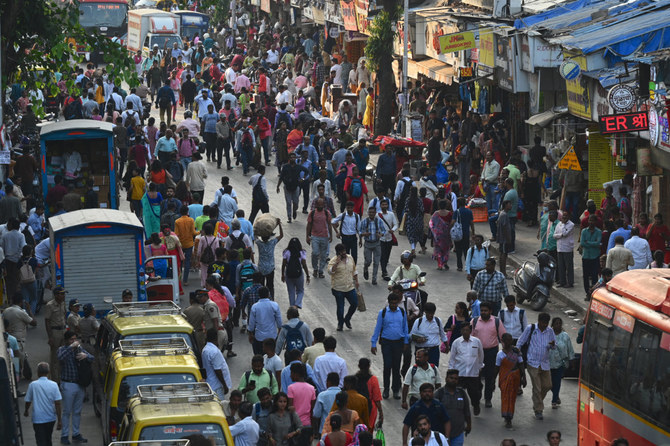
Last week’s Ukraine grain deal saga, with Russia withdrawing and rejoining again within a few days, demonstrates the vulnerability of the agreement brokered by the UN in collaboration with Turkey in July. Ukraine and the West accuse Moscow of using food as a weapon; and what if it decides to do so again? In 2021, Middle East and North African countries imported more than 36 million tons of wheat, almost 30 percent of worldwide wheat imports that year, with Ukraine and Russia among the world’s biggest exporters. This demonstrates the clear and widely felt impact of any changes to the July deal.
It is a new feature of world politics to leverage food security for strategic needs. So, what is the best course of action for MENA states to decrease the impact of the Ukraine war on their supplies? And how might they, rather than being merely affected, also take advantage by using proactive measures to tackle this issue?
The leverage of food security is an old method of diplomacy. Since the 15th and 16th centuries, there has been an understanding of the great importance of food as a sign of strength and a tool for influence. According to American sociologist and economic historian Immanuel Wallerstein, “food needs dictated the geographical expansion of Europe” in that period. In the 18th century, Scottish Enlightenment philosopher David Hume cited public granaries of corn, in addition to magazines of arms and storehouses of cloth, as evidence of “real riches and strength in any state.”
Despite this food diplomacy existing for centuries, the recent example of the food crisis in 2007-2008 highlighted the fragmentation in tackling food security at the international level. With different rules, mechanisms and norms in place, there was little collaboration. The current problems with the grain deal also illustrate these challenges. Therefore, with challenges at the international level, what can be done by Middle Eastern actors to reduce the negative impacts of the Ukraine war? There are potential solutions.At the regional level, countries must develop bilateral and multilateral collaborations to avoid potential forthcoming challenges. For example, in September, Syria, Iraq and Lebanon agreed to support a Jordanian initiative to boost food security in the region, through which Amman plans to open a regional observatory for food security. Jordan has created a “food security council” to work together with the National Committee for Food Security to reduce the country’s vulnerability in terms of food security. As part of its 2021-2030 National Strategy for Food Security, it also established a 2022-2024 executive plan to tackle the issue.
Jordan’s pioneering model could be essential to learn from and follow for other countries, and it has been discussed in such groupings. However, action must be taken immediately, given the visible vulnerability of the Ukraine grain deal and the potential impact its collapse would have on the region.
Food security is not the concern solely of the MENA region, but worldwide, so the issue must be tackled at the highest level of global governance. As the capacity for global governance represented by the UN makes it the key actor in the grain deal, the Middle Eastern players can be more proactive on this platform. The UAE has been a nonpermanent member of the UN Security Council since January and will continue to be until the end of next year, allowing it to contribute to the proposed UN program to tackle the food crisis. The UAE can develop its efforts in addition to the UN’s World Food Program. In general, this issue can be addressed by MENA leaders at the UN General Assembly, with particular proposals and means of collaboration.
Furthermore, as food has been used in diplomacy, it also offers further possibilities to contribute and to reap rewards, especially for rich countries. Just as the GCC states offered foreign aid during the COVID-19 pandemic, with the UAE, for example, distributing aid both regionally and globally — to Croatia, Greece, Italy, Cyprus, Afghanistan, Pakistan, Iran, Seychelles, Serbia and Somalia, among others — they can also use their financial capacities to offer help in facilitating shipments of grain and agricultural products such as fertilizer as foreign aid to in-need countries.
If the results are similar to the aid efforts during the COVID-19 pandemic, it might offer them a way to emerge as “strong” countries. However, the problem could be in purchasing wheat in the first place, given the vulnerable nature of the Ukraine deal and the difficulty of finding an immediate alternative.
Russia this year reported a new grain production record, making it potentially able to offer these supplies. However, the Middle Eastern states could face consequences if they economically deal with Western-sanctioned Russia or trade in US-sanctioned commodities, such as Russian oil. Whether or not the MENA nations will choose to prioritize their own policies and further worsen already cool relations with the West, especially Washington, is a decision that remains to be made by the regional players.
Another option is to buy grain from Ukraine, but the issue is to what extent Kyiv will be able to meet demand due to the ongoing Russian attacks and the possible implications of Moscow repeating its withdrawal from the deal, which again would bring the whole mechanism into doubt.
With these potential questions in mind, however, and by calculating all the advantages and disadvantages of these paths, the Middle Eastern countries might further find politically and economically profitable niches as this war plays out.
Dr. Diana Galeeva was an academic visitor to St. Antony’s College, Oxford University (2019–2022). She is the author of two books: “Qatar: The Practice of Rented Power” (Routledge, 2022) and “Russia and the GCC: The Case of Tatarstan’s Paradiplomacy” (I.B. Tauris/Bloomsbury, 2023). She is also a co-editor of the collection “Post-Brexit Europe and UK: Policy Challenges Towards Iran and the GCC States” (Palgrave Macmillan, 2021). Twitter: @diana_galeeva












